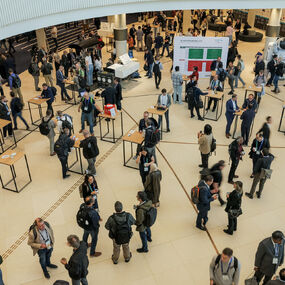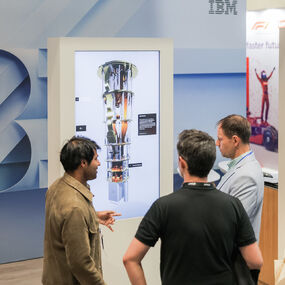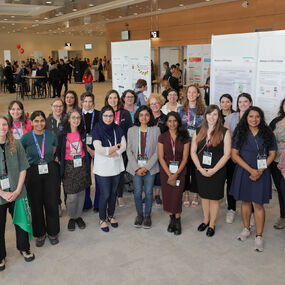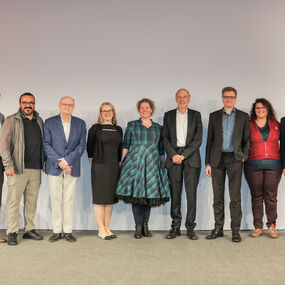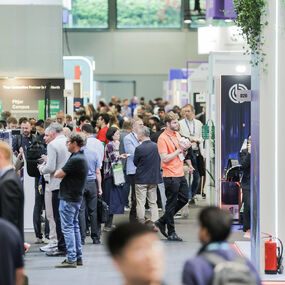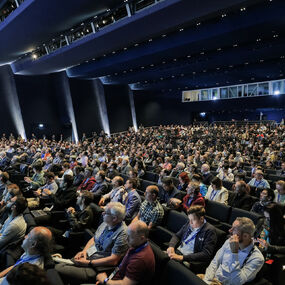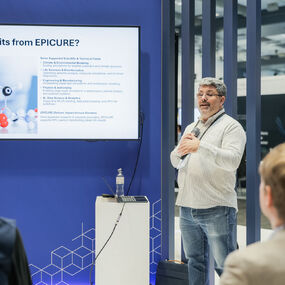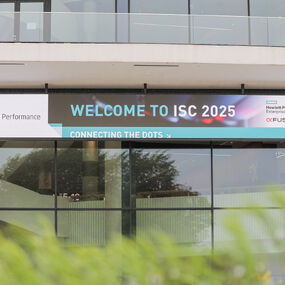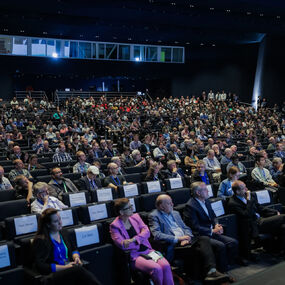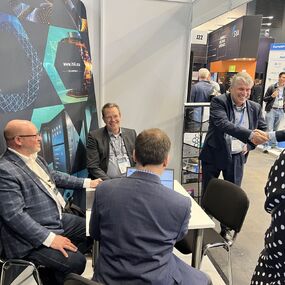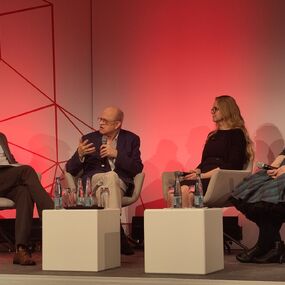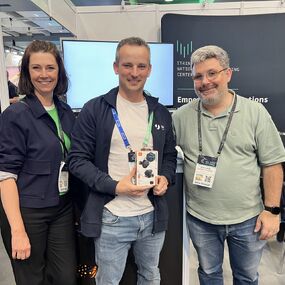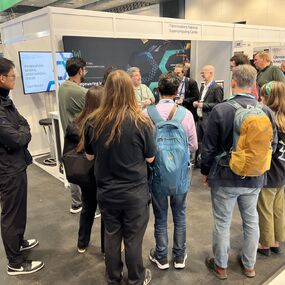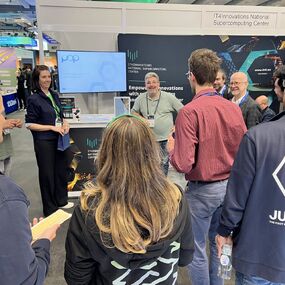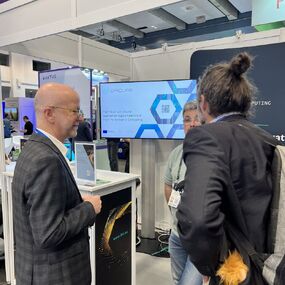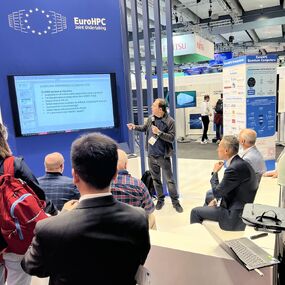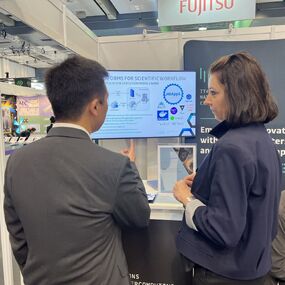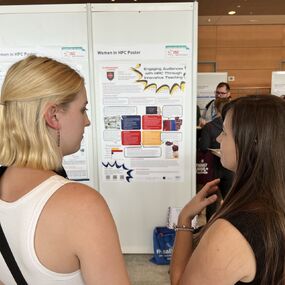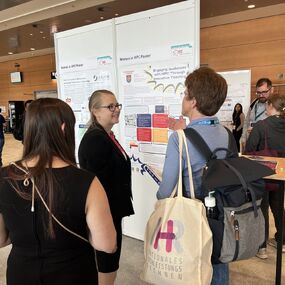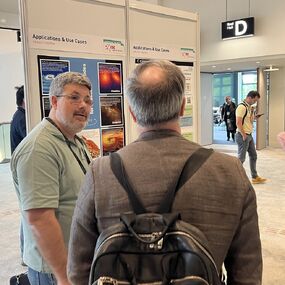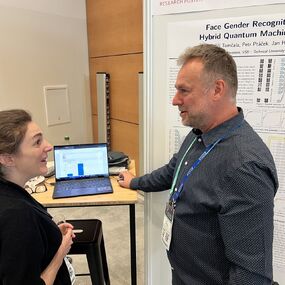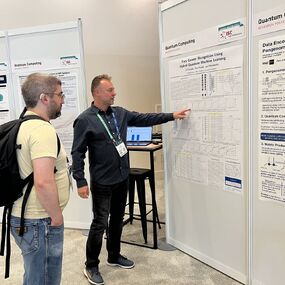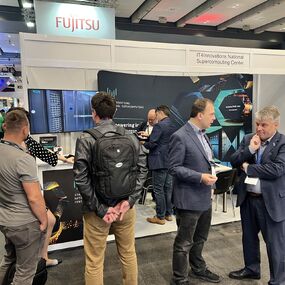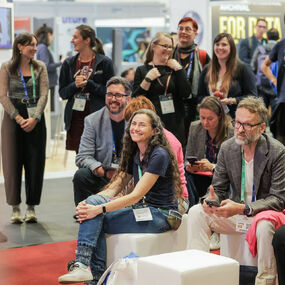From 10 to 13 June, Hamburg, Germany, became the capital of supercomputing power. The 40th anniversary edition of the ISC High Performance conference, Europe's leading event in the field of high-performance computing (HPC), attracted 3,585 attendees from 54 countries. The event confirmed that Europe has powerful machines and a vision — and Czech IT4Innovations was there.
European supercomputers are heading for the top.
At the start of the conference, the new TOP500 and Green500 rankings, which map the world's most powerful and energy-efficient supercomputers, were published. The JUPITER supercomputer's new Booster module, co-financed by EuroHPC JU, was ranked 4th in the TOP500 and became the most energy-efficient system in the Green500. Additionally, the JEDI computing module of the JUPITER supercomputer was ranked first in the Green500, being the world's most energy-efficient supercomputer.
Other systems acquired with the help of EuroHPC JU have also maintained their strong positions in the Green500: LUMI (#36) and Karolina (#76), a supercomputer operated by IT4Innovations in Ostrava since 2021. These results confirm that the European strategy in the field of sustainable computing is bearing fruit.
IT4Innovations: supporting supercomputer users
IT4Innovations had a strong presence at the conference. João Barbosa from the Infrastructure Research Laboratory presented the EPICURE project at the EuroHPC JU stand. This project offers supercomputer users cutting-edge expert support, including code activation and scaling, performance analysis and benchmarking, code refactoring and code optimisation.
At its own exhibition stand, IT4Innovations showcased its computational systems, including the VLQ quantum computer, as well as the numerous projects it is involved in. The presentation also included a competition for a prize as part of the EPICURE project.
AI and quantum computing take centre stage
One of the programmes was a Fishbowl panel discussion entitled 'Is AI a threat or an opportunity for HPC?'. Conducted in a dynamic format, the discussion produced a clear conclusion: artificial intelligence represents a significant opportunity for the advancement of high-performance computing. AI builds on HPC infrastructure and takes it further.
Jiří Tomčala from the IT4Innovations Quantum Computing Lab provided an insight into the combination of AI and quantum computing by presenting the use of hybrid neural networks for gender recognition from facial images in the conference's poster session.
Representation of women in HPC
The Women in High Performance Computing (WHPC) initiative made a strong impact this year, thanks to the involvement of three female IT4Innovations experts.
Khyati Sethia gave a presentation on using deep learning to analyse electron microscope images, opening up new possibilities in materials research.
Lucie Kavka focused on science popularisation, presenting the Superheroes4Science project and innovative ways to communicate HPC topics effectively to the general public in her presentation.
Karina Pešatová spoke at the main WHPC programme, where she introduced the newly established Central European Chapter of WHPC, which she co-founded. She also co-organised three expert discussion sessions (BoF sessions), including the 'HPC and You v5.0' student panel, which focused on career and community development in HPC.
A recording of selected lectures can be found here: https://eu.avolio.swapcard.com/ISC/2025/registrations/On-demand.
This year's ISC conference confirmed that European supercomputing, quantum technologies and artificial intelligence are advancing together, guided by a clear vision and growing influence. Thanks to IT4Innovations, the Czech Republic is keeping pace with global leaders and playing an active role in shaping the future of computational sciences.

